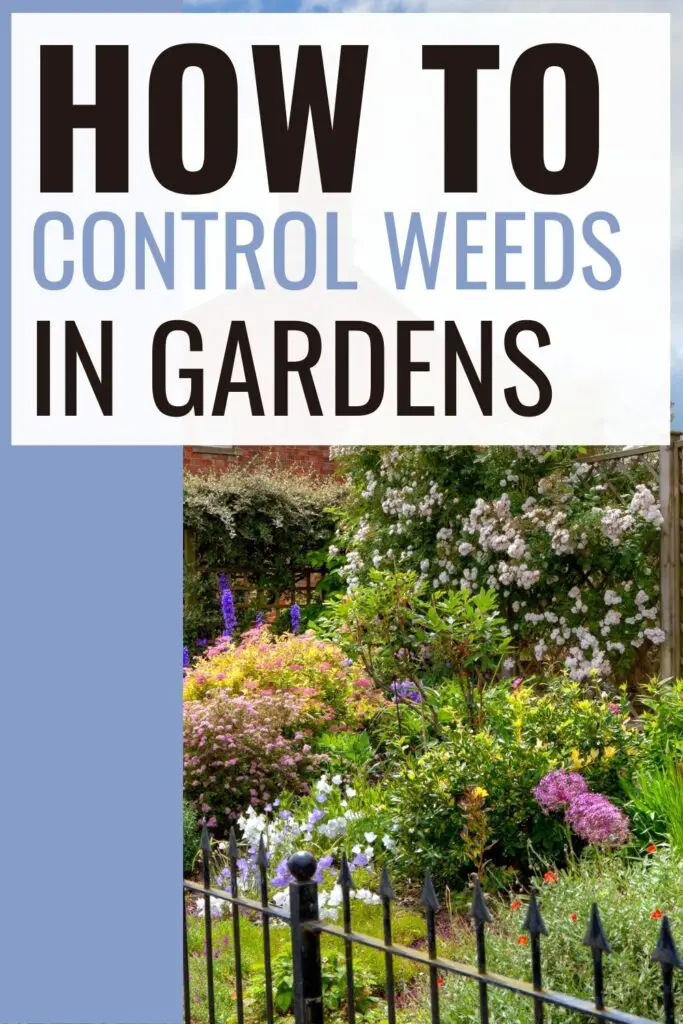Weeding is one of the most detested of all gardening chores, but it doesn’t have to be. Weeding can be made much simpler by implementing a few work-saving methods of weed control for flower beds, which can also help in your vegetable gardens.

Weeds can be a curse for any gardener; if you talk to the majority of gardeners, you will find that they detest this routine gardening chore. However, in order to have a prolific and healthy garden, weeding is an essential task. Weed control is a problem for even gardeners who do not grow organically, and there is no real easy answer to the problem. It takes time and effort to control the unwanted growth in your garden; this is where mulching and composting can prove invaluable.
Weed Control for Flower Beds
How to Begin
The first task that must be undertaken is to run the edge of a sharp hoe under the surface of the soil twice a week to intercept the tiny weeds before they have a chance to attack your seedlings. Once the young plants have grown a bit larger, the soil has warmed, and drenching rains have passed, lay down a layer of mulch to retain moisture and smother out the weeds.
Choose materials that allow the soil to breathe, let the water soak through, and keep out sunlight. These materials can include dried grass clippings either by themselves or mixed with chopped dried leaves, straw, well-rotted sawdust (fresh sawdust will rob the soil of nitrogen), or pine needles can be good choices.
One thing to keep in mind if using grass clippings or weeds is that you run a risk of bringing insects or disease into the garden if these materials are not composted, so it is best to compost these materials before using them as mulch. Organic mulches-straw, leaves, and grass nourish the soil as they decompose in addition to being effective weed barriers.

Benefits of Mulch
Thick layers of mulch keep light from reaching the weeds, which blocks the plant’s production of chlorophyll and halts further growth. Most of the weeds will die before they reach the surface, but those that do will have shallow roots and may be easily pulled. Compost can also be used as mulch; just be aware that if you put kitchen scraps in the compost pile, you may have ‘volunteer’ plants that pop up from any seeds that the kitchen scraps contained.
People who live in wet climates may wish to forego mulching and continue to hoe and cultivate the soil to remove weeds all season long. In these climates, mulching may lead to waterlogging of the soil and cause rot and fungal diseases to develop. For those in dry climates, mulching can decrease plant stress and dramatically decrease the amount of water needed by your garden.
Some of our other popular garden topics include perennial plants that repel mosquitoes, 5 Insects to Welcome to Your Garden, and What Kind of Flowers Attract Bees.